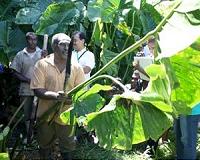 |
Urbana IL (SPX) Oct 26, 2010 As consumer demand for naturally raised beef continues to increase, researchers at the University of Illinois have discovered that naturally raised beef can be produced effectively for this niche market as long as a substantial premium is offered to cover additional production and transportation costs. Naturally raised beef is produced without hormones or antibiotics, whereas traditional systems take advantage of technologies the industry offers such as ionophores like Rumensin to improve feed efficiency and implants to improve gain and efficiency. "Producers are asking many questions about the value of natural programs and the premiums needed to remain profitable," said Dan Faulkner, U of I professor of animal sciences. "Our goal was to find out the costs involved in natural systems focused on producing environmentally friendly, locally raised beef." Researchers studied the effects of finishing management (confinement versus pasture) and production system (traditional versus naturally raised) on performance, carcass and economic characteristics in a group of early weaned Angus x Simmental steer calves at the Dixon Springs Agricultural Center in Simpson, Ill. The calves were fed on fescue pastures or confinement feedlots. The study revealed that naturally raised steers can be produced effectively in either confinement or with a pasture finishing system, but they require a substantial premium of $110 with today's feed prices to justify the costs and returns. Faulkner said that pasture finishing is $35 more profitable than confinement feeding using current feed prices, making it an attractive option for producers interested in raising locker beef for local markets with either natural or traditional production systems. "I think this information will benefit smaller operations that would like to pursue a naturally raised market in a pasture finishing system, but may not be able to use a traditional confinement system," Faulkner said. In addition, naturally raised beef in either pasture or confinement settings resulted in beef with higher quality grades. "There continues to be more interest in naturally raised beef because organic beef standards are so high," Faulkner added. "We need to increase consumer education efforts because naturally raised beef is actually what many consumers are looking for these days." Both organic and naturally raised steers do not receive hormones or antibiotics. The major difference between naturally raised beef and organic beef is that organic beef comes from cattle that are raised on organic pastures that have not been treated with chemicals or chemical fertilizers. In addition, these cattle can only be fed organic certified feeds. Faulkner also differentiated pasture-fed beef from grass-fed beef. "Grass-fed cattle cannot be fed any concentrate - they can only receive roughage," Faulkner said. "And that roughage must meet strict guidelines set by the USDA. On the other hand, pasture-fed cattle have access to a finishing diet and pasture." Pasture-fed cattle have carcass and meat characteristics that are the same as traditionally finished cattle, he added. The meat characteristics of grass-fed cattle are quite different than the average consumer is used to eating. Faulkner said naturally raised beef, regardless of finishing management, is a niche market that has great potential if consumers will pay premium prices. "As producers, we need to be responsive to consumer demand," he said. "Currently, naturally raised beef is a very small percentage of the market. But it is a market that is growing at several hundred percent a year, and has been identified as a niche that consumers are very interested in." This research, "Confinement vs. Pasture and Traditional vs. Naturally Raised Finishing Influences Performance, Carcass, and Economic Characteristics of Early-Weaned Steers," was published in The Professional Animal Scientist. Researchers include Faulkner, Dan Shike and Frank Ireland, all of the U of I.
Share This Article With Planet Earth
Related Links University of Illinois College of Agricultural, Consumer and Environmental Sciences Farming Today - Suppliers and Technology
 Pacific Island Crop Varieties Highly Vulnerable
Pacific Island Crop Varieties Highly VulnerableSydney, Australia (SPX) Oct 26, 2010 Hoping to save the vulnerable varieties of bananas painted by the artist Paul Gauguin, rare coconuts, and 1,000 other unique varieties of staple fruit and vegetable crops across the Pacific, crop specialists from nine islands have launched a major effort to preserve the indigenous diversity of foods that are deemed critical to combating diet-related health problems. "Through this project w ... read more |
|
| The content herein, unless otherwise known to be public domain, are Copyright 1995-2010 - SpaceDaily. AFP and UPI Wire Stories are copyright Agence France-Presse and United Press International. ESA Portal Reports are copyright European Space Agency. All NASA sourced material is public domain. Additional copyrights may apply in whole or part to other bona fide parties. Advertising does not imply endorsement,agreement or approval of any opinions, statements or information provided by SpaceDaily on any Web page published or hosted by SpaceDaily. Privacy Statement |